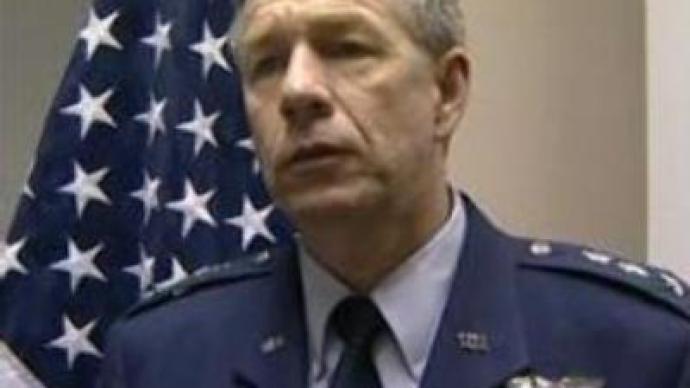American anti-missile system not aimed at Russia: U.S. Missile Defence Agency

The Czech President Vaclav Klaus has met the U.S. Secretary of Defense Robert Gates to discuss a U.S. plan to build a radar base in the Czech Republic. This is part of the U.S.'s plan to install a Central European Missile Shield.
President Klaus also met Vice President Cheney to discuss lifting visa requirements for citizens of the Czech Republic and possible co-operation on missile defence.“We discussed a range of issues, including the possibility of co-operation on missile defence against potential developing threats from the Middle East. The Vice President commended the Czech Republic's continuing contributions to global security as a strong NATO ally and stressed the U.S. commitment to Euro-Atlantic security, which would be further strengthened by missile defence co-operation,” commented a spokesperson from the Vice President's office. Earlier last month, in a move to ease tensions, the head of the U.S. Missile Defence programme confirmed the anti-missile system is not targeted at Russia.“This in no way, shape or form changes the strategic balance between the United States and Russia. In fact what you are talking about is ten interceptors that we would locate in Poland. First of all, from a numbers perspective, there is no way that they can challenge the hundreds of missiles and thousands of warheads that the Russians have,” said Lieutenant General Henry Obering, the Director of U.S. Missile Defense Agency.Meanwhile, U.S. security experts argue that in the short term the missile defence will not threaten Russia.“Initially this system is not going to have any appreciable capability against Russia's missiles. I think the Russian concern is not the near term, but the longer range, ten or fifteen years down the road. What happens if Russia's nuclear arsenal continues to diminish, what happens if Americas missile defence grows stronger, at that point I think the Russian military might start to have some concerns about this, in the near term its really not a concern,” said John Pike, the Director of GlobalSecurity.org from Washington, D.C.According to U.S. officials, the missile defence system is intended to shoot down any missiles fired by what the U.S. considers “rogue states” such as Iran and North Korea. But despite those assurances Russia is not sold on the system. And experts in the U.S. say the program could eventually undermine the Russian nuclear arsenal.“I don't think that Russia is going to be convinced that it's not aimed against them, because the Russian military has to take into account the possibility that eventually it would be aimed against them and needs to plant their missile forces against that possibility. Because it's not a question of intentions it's a question of capabilities. Intentions can change quickly but capabilities take time to develop,” explains John Pike.The Czech government has until the end of March to agree with the U.S. request to host the radar system and proceed with open talks. But the latest opinion polls show that as much as two-thirds of Czechs oppose hosting the radar, and the proposal may also face problems getting through the Czech parliament.The U.S. anti-missile base is facing growing opposition not only from Russia but from the host countries. Also, the plan has triggered friction among NATO allies, fearing that the move could start a new Cold War. Senior Bush Administration officials are proposing more intensive dialogue with Russia to broader technical exchange over the program in an attempt to ease the tensions.
You can share this story on social media:












